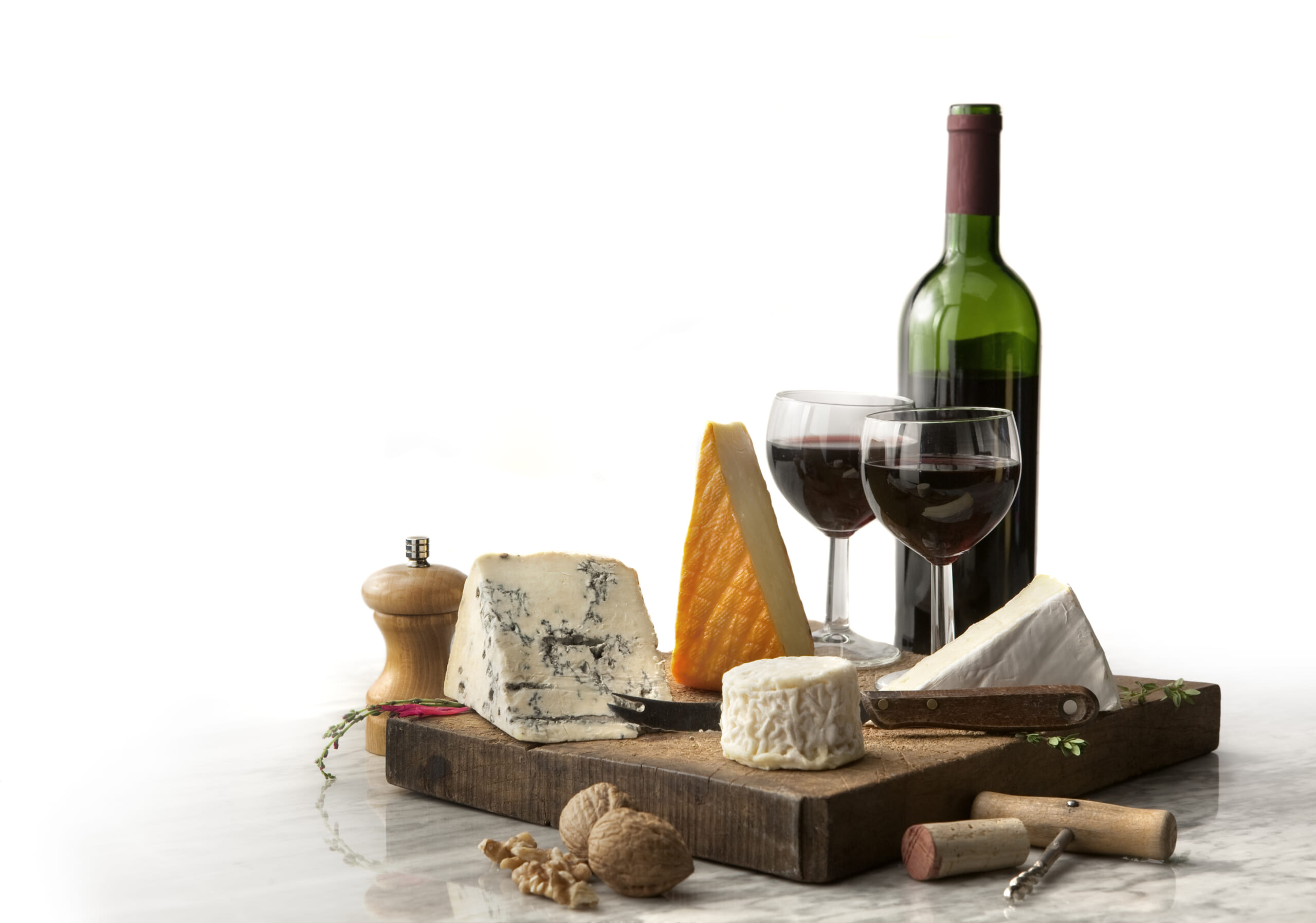Drinking Wine and Eating Cheese Can Reduce Cognitive Decline and Fight Alzheimer’s Disease, Says Study
Intriguing new evidence that wine and cheese can be actually good for you.

A glass of pinot noir and a slice of Gruyere are both an objectively delicious pairing and conducive to maintaining cognitive health through middle and old age, according to a new study.
Researchers at Iowa State University have conducted the first large-scale report that identifies certain foods as successful at fighting Alzheimer’s. Citing a research article published in the Journal of Alzheimer’s Disease, Study Finds reports that 1,787 adults between 46- and 77-years-old in the UK completed baseline Fluid Intelligence Tests between 2006-2010 before follow-ups 2012-2013 and 2015-2016. These exams helped researchers gauge and track their cognitive function.
At all three assessments, participants were also polled on their consumption of food and drink, including: fresh fruit, dried fruit, raw vegetables, salad, cooked vegetables, oily fish, lean fish, processed meat, poultry, beef, lamb, pork, cheese, bread, cereal, tea, coffee, beer, cider, red wine, white wine, champagne, and liquor.
Cheese in particular emerged as the single best food for protecting against the progressive, brain cell-degenerating disease and other age-related cognitive issues. Daily glasses of red wine and a weekly meal including lamb were also found to be beneficial to mental faculties. Excessive consumption of salt, however, increases risk in people who are prone to Alzheimer’s.
“I was pleasantly surprised that our results suggest that responsibly eating cheese and drinking red wine daily are not just good for helping us cope with our current COVID-19 pandemic, but perhaps also dealing with an increasingly complex world that never seems to slow down,” principal investigator Auriel Willette says in a university release.
“While we took into account whether this was just due to what well-off people eat and drink, randomized clinical trials are needed to determine if making easy changes in our diet could help our brains in significant ways,” said neuroscience Ph.D. candidate Brandon Klinedinst.
“Depending on the genetic factors you carry, some individuals seem to be more protected from the effects of Alzheimer’s, while other seem to be at greater risk. That said, I believe the right food choices can prevent the disease and cognitive decline altogether.”









